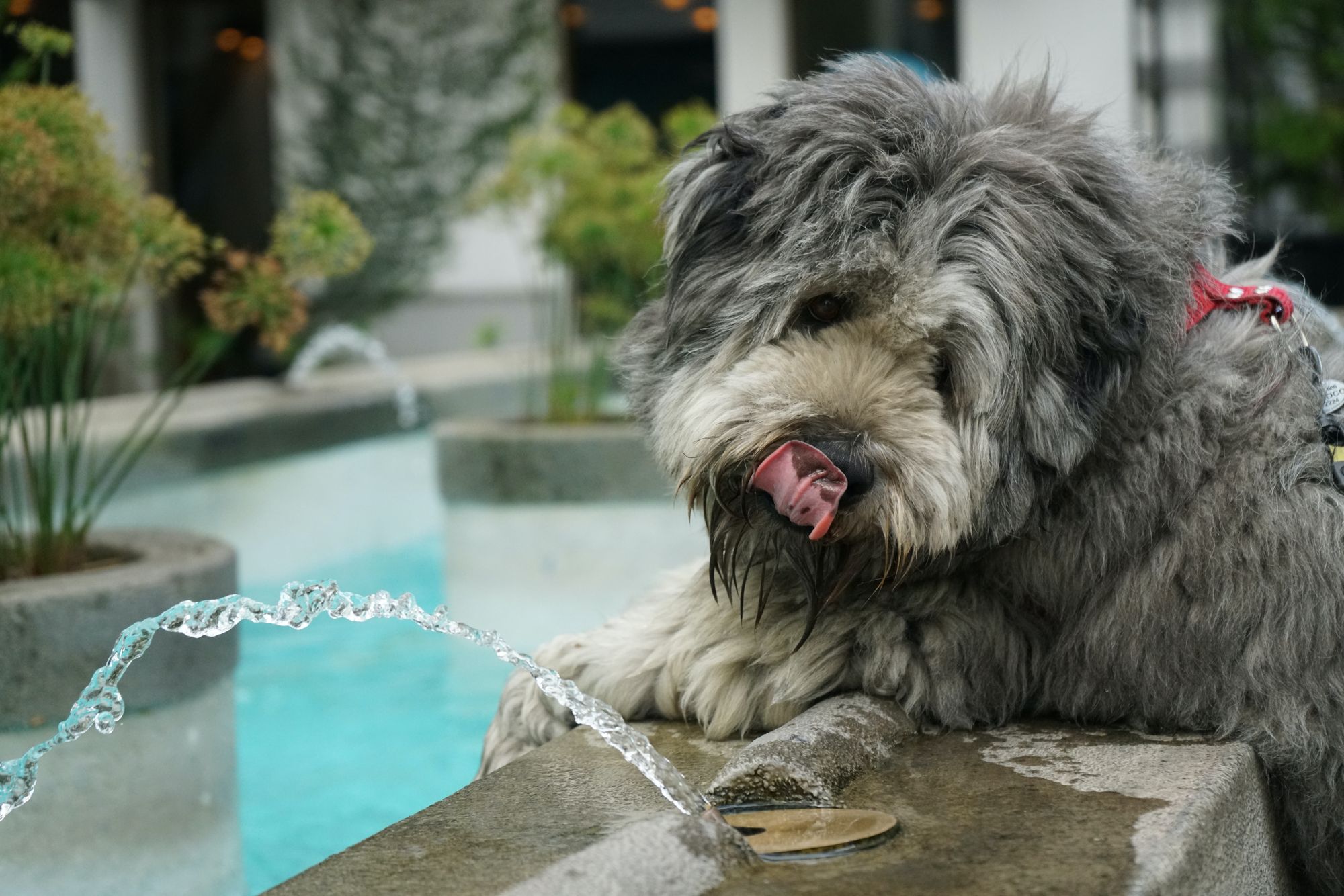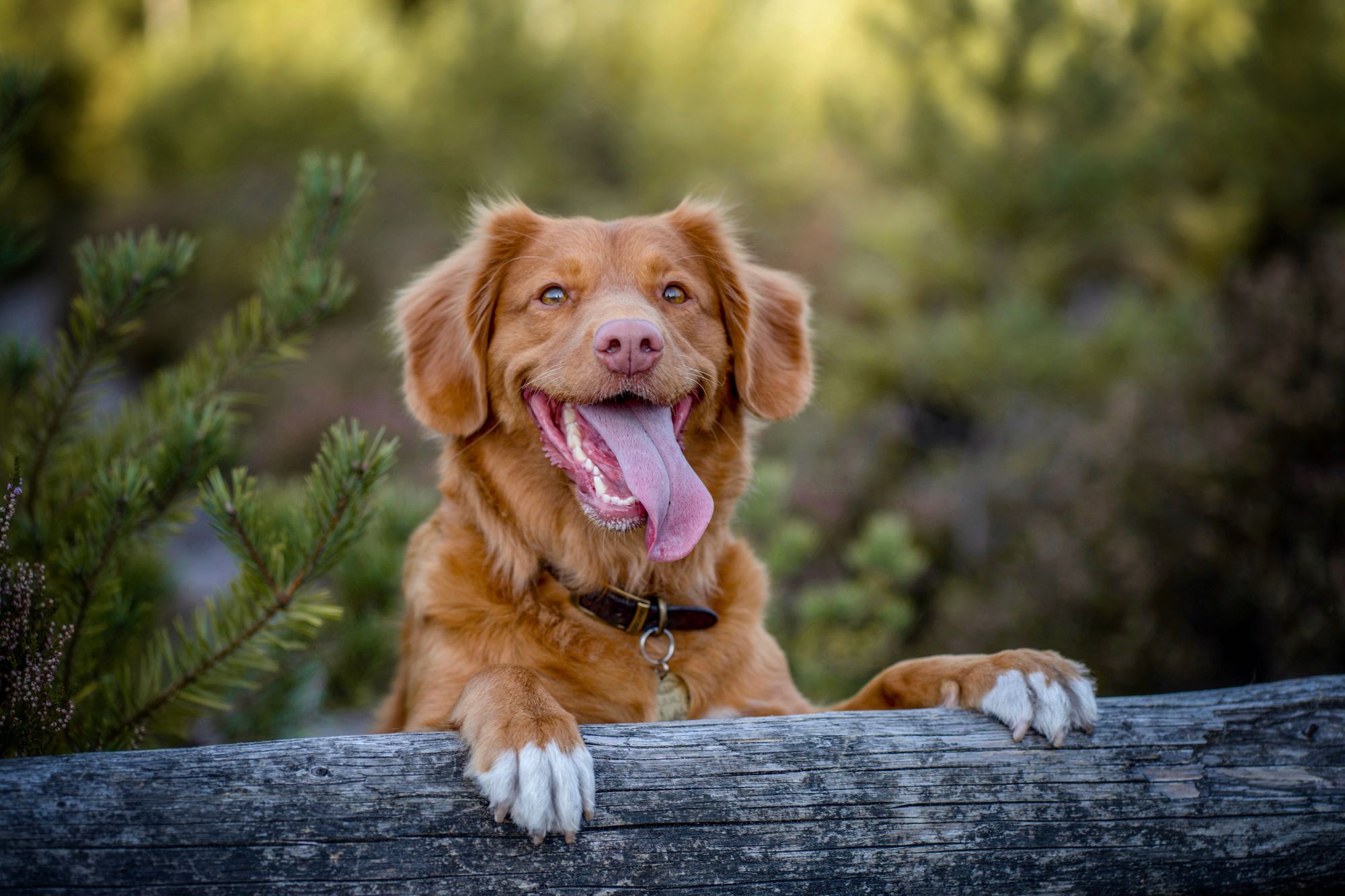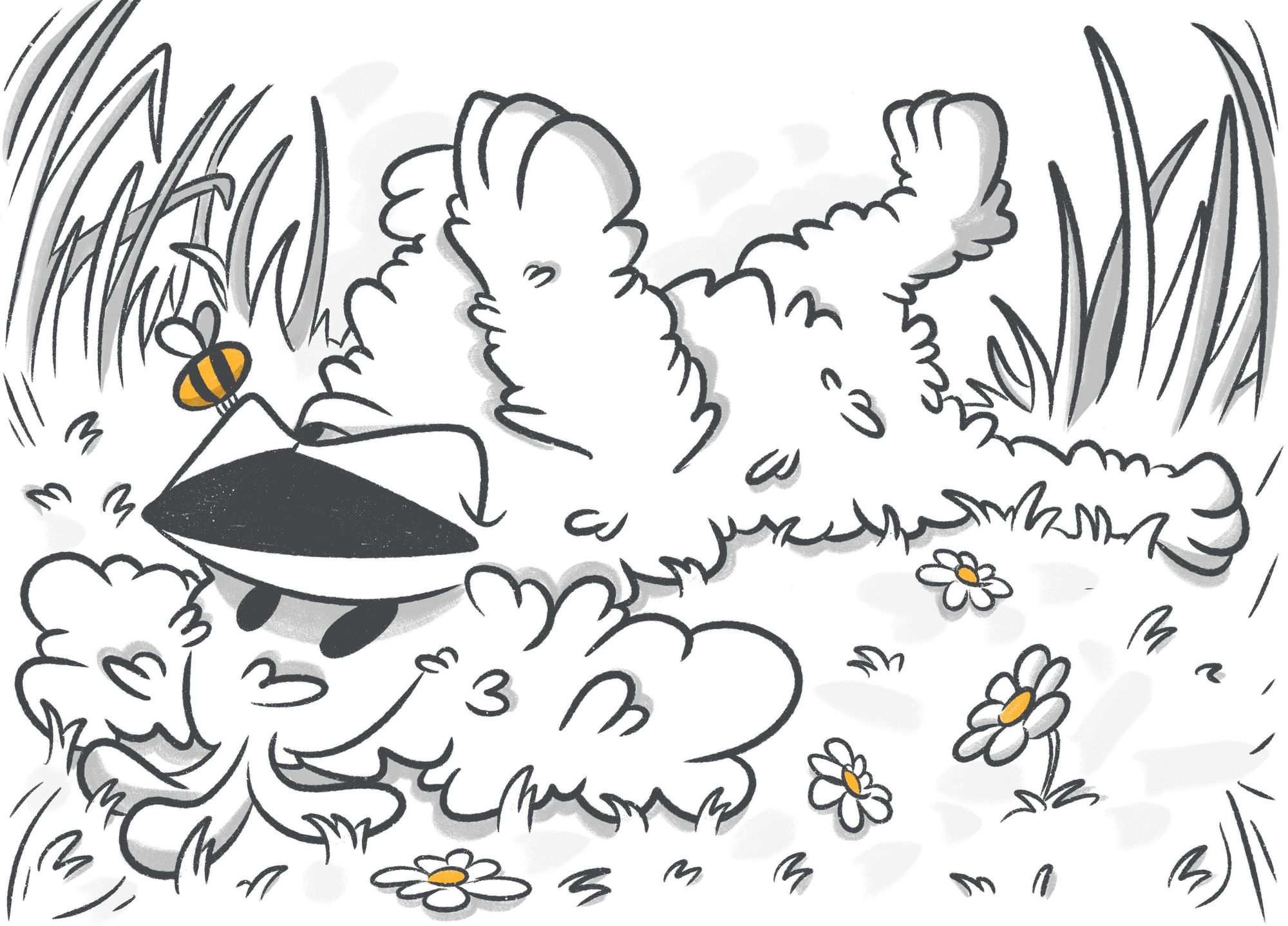The warmer weather and longer days of spring are finally upon us, and while this is a welcome relief from the dreary winter, the season can bring with it several concerns for your best pal.
You may have already noticed a slight change in your dog's behavior or wonder what you can expect. We've covered all the bases you'll need to consider to safely navigate your canine companion through the coming spring months — from dehydration-busting tips to allergy relief, injury prevention, and other risks to be aware of.
Stop Googling - Ask a Real Vet
Content:
- How does Spring Affect Dogs
- Keeping Tabs on Your Best Pal Even When You Are Not Home
- Spring Care Checklist for Your Dog
- FAQ
How does Spring Affect Dogs
After spending the winter largely indoors, your dog is now being assaulted by various sounds (birds chirping, other dogs barking, local wildlife), smells (flowers, grass, and local wildlife), and just the general thrill of being outdoors again.
Spring also stirs in your dog the desire to procreate. If your dog hasn't been sterilized, you may experience some new dog courtship behaviors, like humping (your legs, visitors legs, furniture, pillows), spraying, new vocalizations, and rubbing of the hindquarters on furniture, carpets, and even legs.
The new season is also likely to result in a doggo who may get overexcited easily. Dogs suddenly bolting, getting out of the yard, and getting a great big lungful of freedom are common. Commands that your pup used to obey are now potentially falling on deaf ears. A puppy ignoring commands may just need a refresher on their training to remind them. Some springtime dog training refreshers can never hurt. Dog park etiquette is also important.
Read more: How to Discipline a Puppy Without Punishment
You might see your dog become more active and excitable after appearing a little blue during the winter. Can dogs get seasonal depression? Sort of. Typically, your dog's behavior may change during the winter months.
Common Canine Spring Health Problems
There are several potential dangers that are particularly important to be aware of during the springtime. When it comes to the health of your best pal, take absolutely no chances, and if you haven't already, make sure you've signed up with Petcube's Emergency Fund to make sure that if you're ever in any doubt about your pet's health, you have a team of qualified vets on hand 24/7 to ask for advice.
Allergies
This might seem predictable, but your dog is just as susceptible to seasonal allergies as you are. The increase in atmospheric pollens and spores can cause your doggo to sneeze, sniffle, cough, scratch, and even chew at its paws and legs.
Relief is at hand—contact your vet for your dog's treatment and allergy relief.
Injuries
This is related to dogs, but it can also double as advice for humans. After a sedentary winter, it can be tempting to get outdoors and get back into running, jumping, and exercising like you did last summer.
This is a mistake and can lead to injuries, sprains, and strains. Dog playtime should start slowly and increase in intensity over time. Start with shorter walks and dog friendly activities, and less vigorous games of fetch.
Read more: What to Do When Your Dog Breaks or Fractures the Bone?
Easter
Easter and springtime go hand in hand. If you're hiding chocolate eggs in the garden for the kiddos, remember where you've stashed them all to ensure they find them all. Too many eggs have gone unfound by pajama-clad little chocolate fiends and ended up in the mouth of the family dog.
Chocolate is extremely toxic to dogs, and this kind of scenario can end in disaster.
Heat & Dehydration

As the days get warmer, it’s likely you’ll be partaking in more outdoor activities with your dog. According to American Kennel Club, warmer days can very quickly lead to dehydration if your pup doesn't have access to plenty of fresh water. If you're at work during the day and your dog is outside, ensure the water isn't in the sun getting warm and that there's a shady spot where your dog can find shelter from the heat.
Read more: How to Get a Dog to Drink Water?
Bugs & bites
Hotter days are notorious for an increase in bugs. This includes parasites like ticks and fleas and worms of all descriptions. Make sure to get your dog regular preventative medications to keep these pests at bay.
Spring Cleaning Chemicals
If you're planning a big spring clean, ensure you're careful with the cleaning products. Common cleaning products like ammonia, bleach, and chlorine can cause some serious problems if ingested by your dog.
Gardening Bangers
Gardeners revel in the spring months when they can hit the garden centers to purchase new plants and all the bits and pieces they need to nurture their garden into a verdant paradise.
Keep in mind that some plants can be toxic to your dog if eaten, like azaleas and rhododendrons. Also, common gardening products can be harmful: fertilizers, pesticides, and herbicides.
Wildlife
You're likely to see an increase in activity from local wildlife. Larger predatory species can be on the prowl, looking for small dogs and cats to prey on. Never leave your dog unattended if you live in areas where such animals can be expected.
Raccoons, squirrels, and various other small creatures are about, and your dog is hardwired to give chase and chow down if the opportunity arises. We'd always discourage you from allowing your pet to feast on local delicacies like this, as these animals carry disease.
Vaccinations & Parasite Prevention
As your dog is going to be out and about more, it's important to ensure all vaccines are up-to-date and your dog is protected against common parasites and pests too. An unvaccinated dog is at greater risk of contracting illness and parasites.
Read more: How Often Should I Take My Dog to the Vet?
Keeping Tabs on Your Best Pal Even When You Are Not Home

It's always a good idea to closely monitor your pets, but we also understand that you can't always be at home with them. In such cases, the Petcube Cam is your eye on the ground, as it were.
With two-way sound, you can both hear and talk to your pet while seeing them on the high-quality video. Want to make sure your pet is stimulated and engaged while you're out? No problem; choose the model with the handy treat dispenser that tosses treats for your pet at your command.
Now you never have to wonder about what your doggo gets up to while you're not home.
Spring Care Checklist for Your Dog
As the adage goes, prevention is indeed better than cure. So, we've created this spring checklist of dog care instructions to make sure you cover all the bases to ensure your dog has a fun and healthy spring ahead. Mark what you've already done.
FAQ
How to get a dog to drink water when dehydrated
Doggie not drinking its water? Make sure their bowl is clean and the water is fresh. If it's been standing in the sun, it may be warm and not very appealing.
If you spot the symptoms of dog dehydration and you need to get fluids into your doggo but they're resisting, try to offer them ice. Dogs love the crunch, and they get their hydration without realizing it. You can also add water to their dry food to sneak it in.
Do dogs need sunlight? Is sunlight good for dogs?
Sunlight is as essential to your dog's well-being as it is to yours. The periods of sunshine are important in regulating your dog's body clock or biorhythms, which in turn affect things like hormone production, cell regeneration, the immune system, and metabolic functions.
In the wild, your dog would be in the sun the entire day, resting in the shade when it got too hot. So, getting your domesticated dog to match that (or as close to that as you can manage) is ideal.
Do dogs get seasonal depression?
There's no real way to know for sure if dogs suffer from seasonal depression or SAD (Seasonal Affective Disorder), but some people do notice a change in their dog's behavior during the gloomy and dark winter months.
This may be due to being indoors for long periods, boredom, and low light levels. As a paw-rent, you can do a few things to help, including getting doggo outdoors when the sun peeps through, getting better indoor lighting, and ensuring that your dog is adequately stimulated and entertained when they're unable to head outside to burn off some energy.
How to prevent parasites in dogs?
Exposure to parasites is a daily threat to dogs, no matter how careful you are. To ensure your dog stays healthy and parasite free, it's best to stay ahead of the game with preventative measures like regular deworming and tick and flea treatments.
Was this article helpful?
Help us make our articles even better









